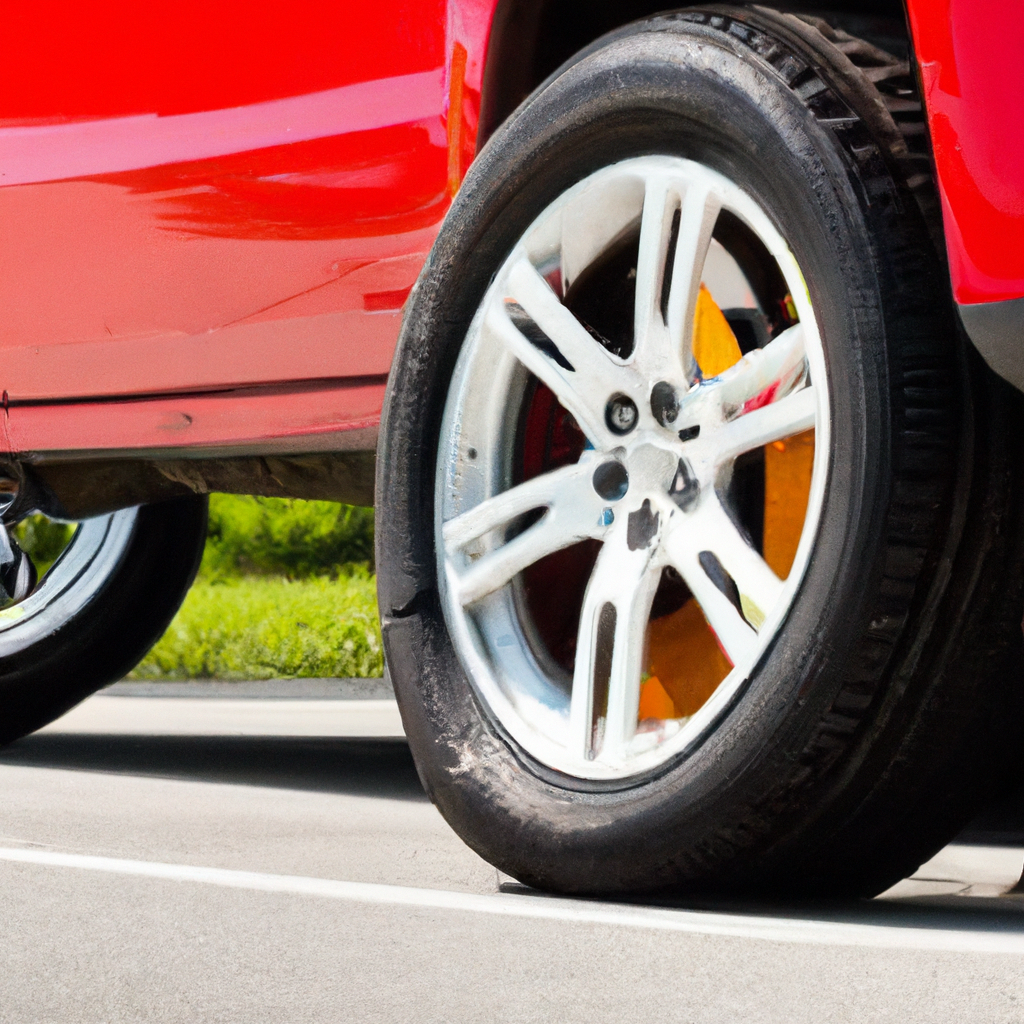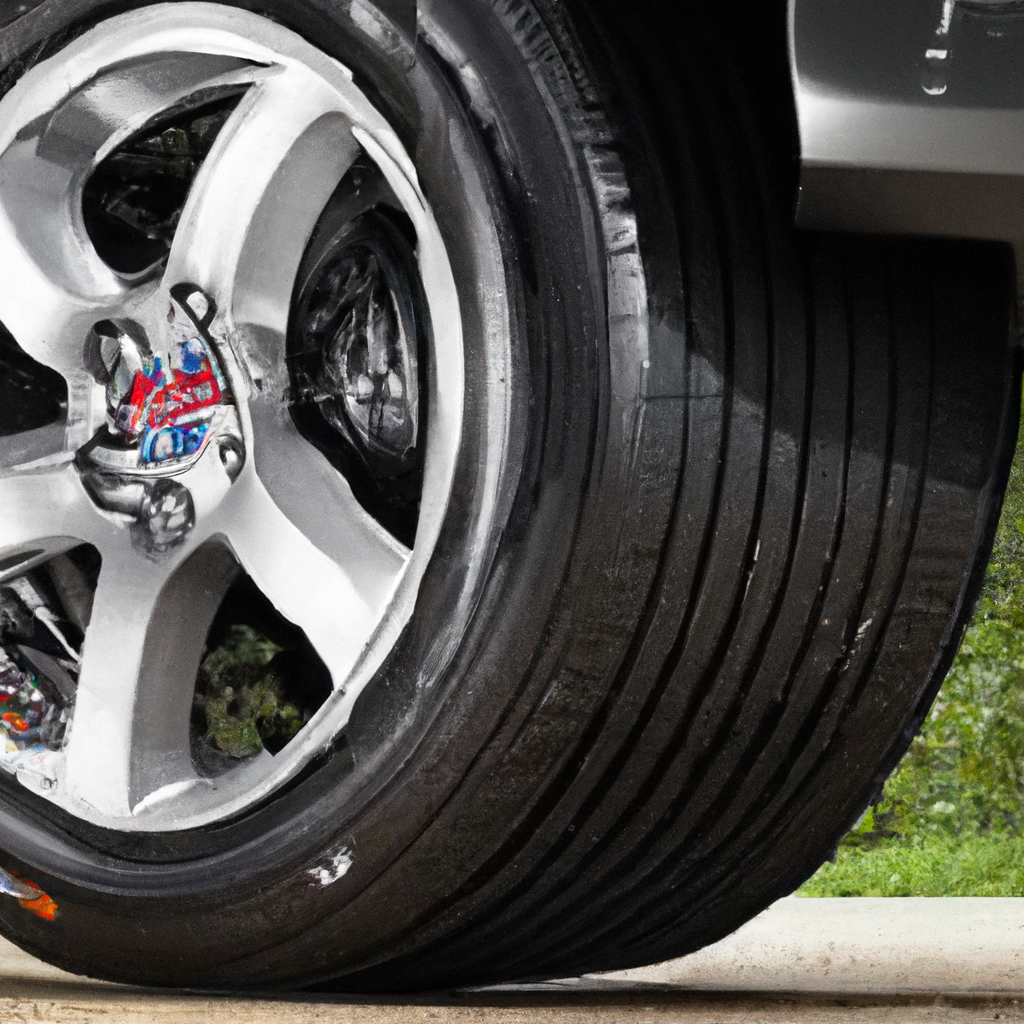If you’ve ever wondered about the impact of run-flat tires on the suspension system of your vehicle, you’re not alone. This article aims to shed light on the intriguing relationship between these two components. By understanding how run-flat tires affect the suspension system, you’ll gain valuable insights into the overall performance and maintenance of your car. From the unique design of run-flat tires to the potential challenges they pose to your suspension, get ready to explore the fascinating world where rubber meets mechanics.
Effects of Run-Flat Tires on Suspension System

Impact of Stiffer Sidewalls
One of the major effects of run-flat tires on the suspension system is the impact of stiffer sidewalls. Run-flat tires are specially designed to have reinforced sidewalls that can support the weight of a vehicle even after the loss of air pressure. While this feature provides added safety in case of a flat tire, it also affects the overall performance of the suspension system. The stiffer sidewalls of run-flat tires can result in a harsher ride, as they are less flexible compared to conventional tires. This increased stiffness can lead to a decrease in overall ride comfort.
Changes in Ride Comfort
As mentioned earlier, the stiffer sidewalls of run-flat tires can have an impact on ride comfort. The reduced flexibility of the sidewalls can result in a harsher ride, especially on uneven or bumpy roads. The suspension system, which is responsible for absorbing shocks and vibrations, may not be able to compensate effectively for the stiffer tire construction. This can lead to a decrease in ride comfort, as you may feel more bumps and vibrations while driving with run-flat tires compared to regular tires.
Altered Suspension Performance
The use of run-flat tires can also alter the performance of the suspension system. The stiffer construction of these tires can change the way the suspension system behaves, especially during cornering or quick maneuvers. The suspension may have to work harder to keep the vehicle stable and maintain contact between the tires and the road. This can lead to a slight decrease in overall suspension performance, as the system may not be able to provide the same level of stability and control as with conventional tires.
Increased Stress on Suspension Components
Another effect of run-flat tires on the suspension system is the increased stress on suspension components. The stiffer sidewalls of these tires can transfer more force and impact to the suspension system, putting additional strain on various components such as the shocks, struts, and springs. Over time, this increased stress can lead to accelerated wear and tear on these components, potentially leading to premature failure. It is important to regularly inspect and maintain the suspension system when using run-flat tires to ensure optimal performance and safety.

Adaptations for Run-Flat Tires
Due to the differences in construction and performance, vehicles equipped with run-flat tires may require specific adaptations in the suspension system. For example, the spring rates and damper settings may need to be adjusted to compensate for the stiffer sidewalls and altered tire characteristics. Manufacturers may also incorporate additional reinforcement in the suspension components to withstand the increased forces exerted by the run-flat tires. These adaptations are crucial to ensure that the suspension system can effectively handle and support the unique requirements of run-flat tires.
Different Suspension Tuning
In order to optimize the performance and ride comfort of vehicles equipped with run-flat tires, manufacturers often employ different suspension tuning. This includes adjustments in the suspension geometry, spring rates, and damping characteristics. The goal is to find a balance between handling, ride comfort, and tire performance. By fine-tuning the suspension system specifically for run-flat tires, manufacturers aim to provide a satisfactory driving experience while maintaining the safety and reliability associated with these tires.

Impact on Handling and Steering
The stiffer sidewalls of run-flat tires can also have an impact on the handling and steering response of a vehicle. While they provide improved stability in the event of a puncture, they may also result in a slightly less responsive steering feel. The increased rigidity of the tires can reduce the communication between the road surface and the driver, leading to a slightly diminished sense of control. However, advancements in tire technology and suspension tuning have minimized these effects, and modern run-flat tires offer better handling and steering response compared to their earlier counterparts.
Changes in Noise and Vibration
The use of run-flat tires can introduce changes in terms of noise and vibration levels experienced inside the vehicle. The stiffer sidewalls of these tires, combined with the altered suspension performance, can result in increased noise and vibrations transmitted to the cabin. The noise may be more noticeable, especially on rough or coarse road surfaces. Additionally, the vibrations felt through the steering wheel or seats may be slightly more pronounced. However, manufacturers are continuously working to minimize these effects through tire and suspension advancements, aiming to provide a comfortable and quiet driving experience.

Influence on Tire Wear
Run-flat tires often have different wear patterns compared to conventional tires due to their unique construction and characteristics. The stiffer sidewalls can result in increased wear on the center tread, while the shoulders may show less wear. Additionally, the increased stress on the suspension components can also indirectly affect tire wear. Premature wear on suspension components can lead to misalignment issues, causing uneven tire wear over time. It is crucial to regularly monitor tire wear and perform alignments and rotations as recommended by the manufacturer to ensure optimal tire performance, longevity, and safety.
Importance of Regular Maintenance
With the use of run-flat tires, regular maintenance becomes even more crucial to ensure the optimal performance and longevity of the suspension system. Regular inspections of suspension components, such as shocks, struts, and springs, should be conducted to detect any signs of wear or damage. In addition, proper tire maintenance, including regular air pressure checks and rotations, is vital. Adequate tire maintenance helps in maximizing the performance and lifespan of run-flat tires, and it also contributes to maintaining the overall safety and comfort of your vehicle.
In conclusion, while run-flat tires offer the benefit of continued mobility after a puncture, they do have several effects on the suspension system. The stiffer sidewalls, changes in ride comfort, altered suspension performance, and increased stress on suspension components are some of the notable impacts. However, manufacturers have adapted suspension systems and tuning for run-flat tires to mitigate these effects and provide a safe and comfortable driving experience. Regular maintenance, such as inspections and tire care, is essential to ensure optimal performance and longevity when using run-flat tires.


